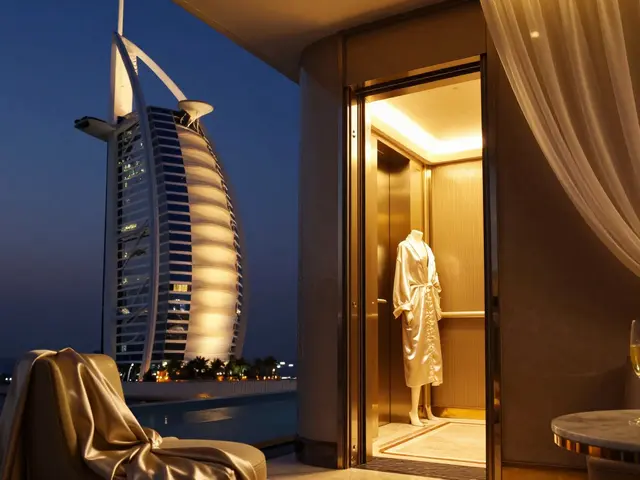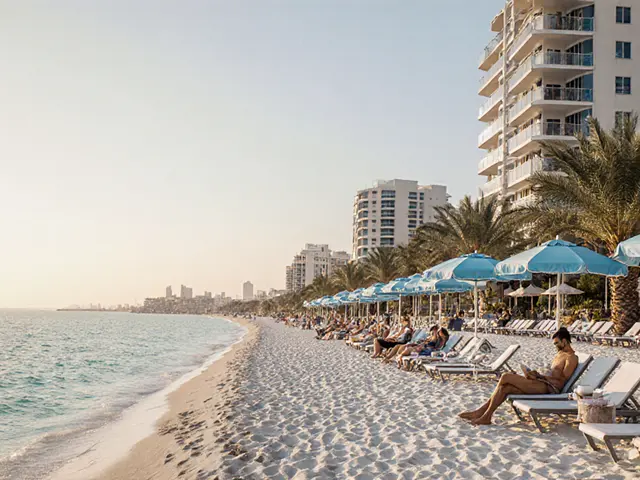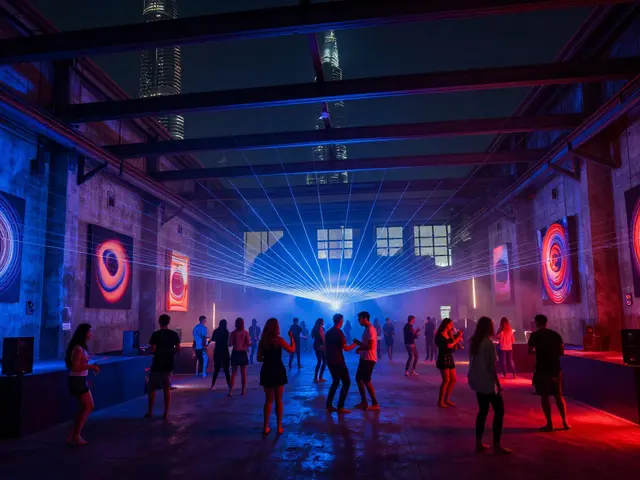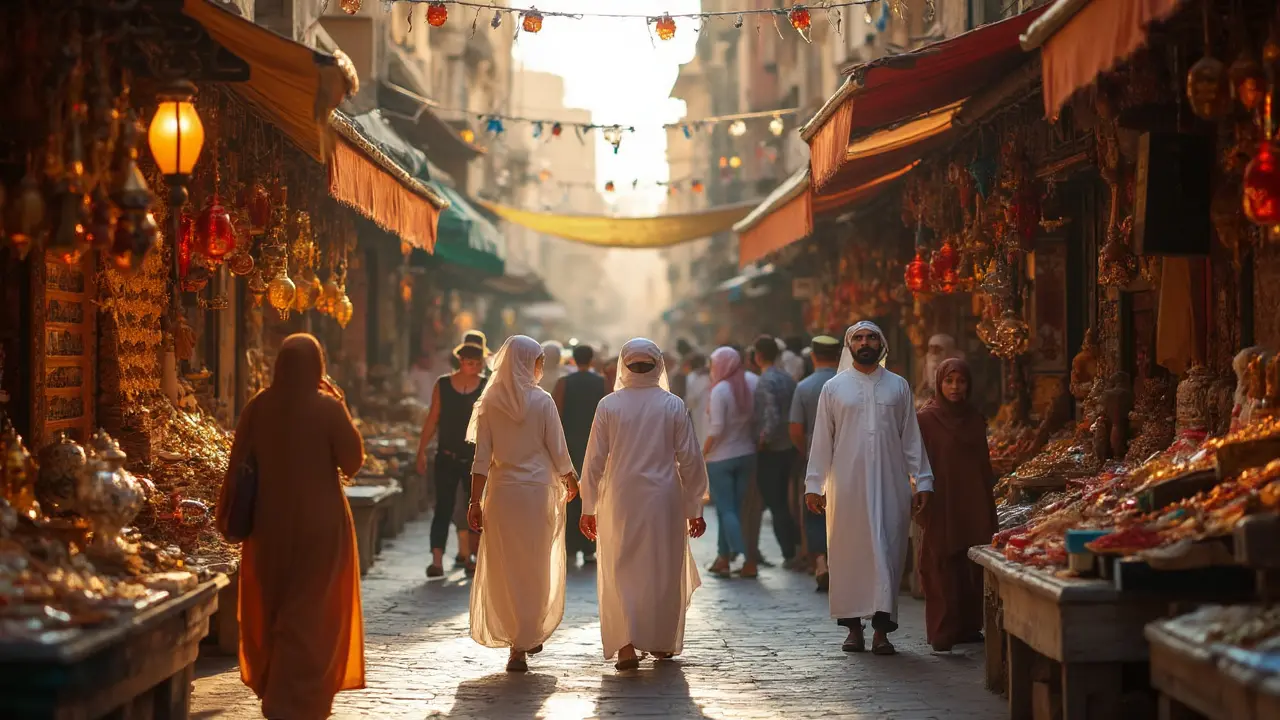
Want to experience the world without ever leaving Dubai? You’re in the right place. Dubai’s cultural experiences take you from old-school Emirati traditions straight into buzzing global scenes—all within city limits.
You don’t need to search far and wide for old souks, spicy street food, or art that makes you stop scrolling. Head to Al Fahidi Historical Neighbourhood if you want a taste of how Dubai started; the quiet backstreets, wind towers, and museums give you an instant history lesson. Not far, the Dubai Museum in Al Fahidi Fort is the spot where expats, locals, and nerdy tourists all seem to cross paths for a look at what life in the UAE was before skyscrapers and smart shops took over.
But traditions aren’t trapped in the past. Heritage villages pop up along Dubai Creek, especially during events like the Dubai Shopping Festival, where you can join a falconry demo or snack on luqaimat (crunchy sweet dumplings—trust me, you’ll want seconds). It’s casual, real, and super friendly, whether you’re with family or on your own.
Thinking about what to wear or how to act? No sweat—Dubai is laid-back, but in heritage spots, covering shoulders and knees shows respect. And always greet with a smile or a polite ‘Salam Alaikum’—that’s your best starting point anywhere in the city.
- Traditional Roots: Discovering Emirati Heritage in Dubai
- Souk Life and Modern Markets: Where Cultures Collide
- Festivals, Art, and Live Performances: Dubai’s Event Scene
- Dubai’s Foodscape: Tastes from Every Continent
- Connecting with the World: Unique Workshops and Cultural Exchanges
Traditional Roots: Discovering Emirati Heritage in Dubai
If you want to get real about Dubai cultural experiences, you’ve got to start with Emirati heritage. While the city’s skyline screams modern, the roots run deep and locals are proud to share their story with anyone willing to listen—even if you’re just curious or a weekend explorer.
Pop over to the Sheikh Mohammed Centre for Cultural Understanding (SMCCU) in Al Fahidi and you’ll get more than a history lesson. Book one of their traditional Emirati breakfasts or walking tours. Questions are actually encouraged, even about stuff you might find awkward—think customs, religion, dress codes, or daily life. They’ll even teach you how to greet someone the local way. Their motto is 'Open Doors, Open Minds' and it feels like it.
Not into group tours? Head to Al Seef, which runs along Dubai Creek. It’s a mashup of old and new: restored wind towers next to cool cafes and souvenir shops. Here, you’ll catch sight of old wooden abras—those boats that ferry people across the water for just a couple dirhams. Fun fact: abra rides along the Creek have been going for centuries, and they’re still one of the cheapest things to do in the city.
Want to see how Emiratis lived before oil and air conditioning? The Etihad Museum on Jumeirah Road is the place. It’s loaded with interactive displays and bite-sized facts about the seven Emirates coming together to form the UAE in 1971. If you like cool gadgets, don’t miss the digital archives.
Curious about traditional hospitality? Majlis experiences (the majlis is kind of like a sitting room, but way more important in Emirati homes) can be booked through SMCCU or sometimes during city festivals. Here’s where you get a taste of Emirati coffee (yes, spiced with cardamom) served with dates—the classic combo. Don’t gulp your coffee, though; it’s poured in small cups and always with your right hand.
- Visit Al Fahidi Historical Neighbourhood for old-school vibes and art galleries.
- Book a meal or Q&A at SMCCU to ask anything about UAE culture.
- Take an abra on Dubai Creek for only 1 AED.
- Check out Heritage Village in Al Shindagha during festivals for falconry or craft demos.
- Time your visit around National Day (December 2), when the city goes big on heritage parades and cultural shows.
| Heritage Spot | What You'll See/Do | Entry Fee (AED) |
|---|---|---|
| Al Fahidi Historical Neighbourhood | Museums, art, cafés | 0-10 |
| SMCCU | Meal/tour/Q&A | 60-80 |
| Abra Ride on Dubai Creek | Traditional boat crossing | 1 |
| Etihad Museum | Interactive exhibits | 25 |
| Heritage Village (Al Shindagha) | Crafts, shows | Free on event days |
One more thing: when visiting mosques, like Jumeirah Mosque (one of the few open to non-Muslims for tours), remember to dress modestly—long sleeves and pants, with a headscarf for women. They provide scarves if you forget.
Experiencing Dubai’s traditional side isn’t hard, you just have to know where to look—and maybe step outside the malls for a minute.
Souk Life and Modern Markets: Where Cultures Collide
Dubai’s mix of old and new markets is almost legendary. You’ve got classic souks that look straight out of a movie, sitting right next to glossy malls that feel more like luxury theme parks. The cool part? Both are packed with global flavors, styles, and stories, so you get Dubai cultural experiences all day long.
Start with the Gold Souk in Deira—it’s been around forever and still wows with over 380 shops crammed into a few blocks. If you’re after something more sensory, the Spice Souk is a couple of minutes away with massive sacks of cinnamon, saffron, and dried lemons. Don’t be shy about smelling, sampling, or haggling here. Bring cash for the best deals, and if you’re after real bargains, early mornings or late evenings are your best bet.
For textiles, the Bur Dubai Souk is a goldmine for fabrics. Need abayas? Pashminas? Something shiny for Eid? This is the place. Half the fun is getting lost here—and if you ask for directions, you’ll likely end up chatting with merchants from Yemen, Iran, and India. That’s daily life in Dubai’s souks: totally multicultural.
Let’s talk data. Dubai’s traditional Deira markets see over 3 million visitors every year, while places like Global Village pull in around 7 million with their mashup of global pavilions. See how those numbers stack up?
| Market | Annual Visitors (approx.) | Main Attraction |
|---|---|---|
| Deira Gold Souk | 3 million+ | Gold and Jewelry |
| Spice Souk | 1.5 million | Exotic Spices & Herbs |
| Global Village | 7 million+ | World Pavilions, Food, Shopping |
| City Walk | 2 million | Fashion & Restaurants |
Modern markets and malls are just as wild, but in a different way. Visit City Walk or Boxpark for open-air, Insta-ready shopping with pop-ups selling African prints, Turkish lamps, and Filipino homeware. Mall of the Emirates and The Dubai Mall take things up a notch with everything from French bakeries to Korean skincare kiosks. It’s not just shopping—there’s always some festival, street art event, or food fest going on.
Insider tip: Want a little bit of everything? Try Global Village at night when the weather’s nice. It's like a cultural theme park with 90+ countries in one space, and you’ll eat your way from Syrian baklava to Indian samosas in under an hour.
Most expats and locals agree, if you want to feel the heartbeat of Dubai, spend time in its markets—old or new. There’s no better shortcut to experiencing the world in a single city.
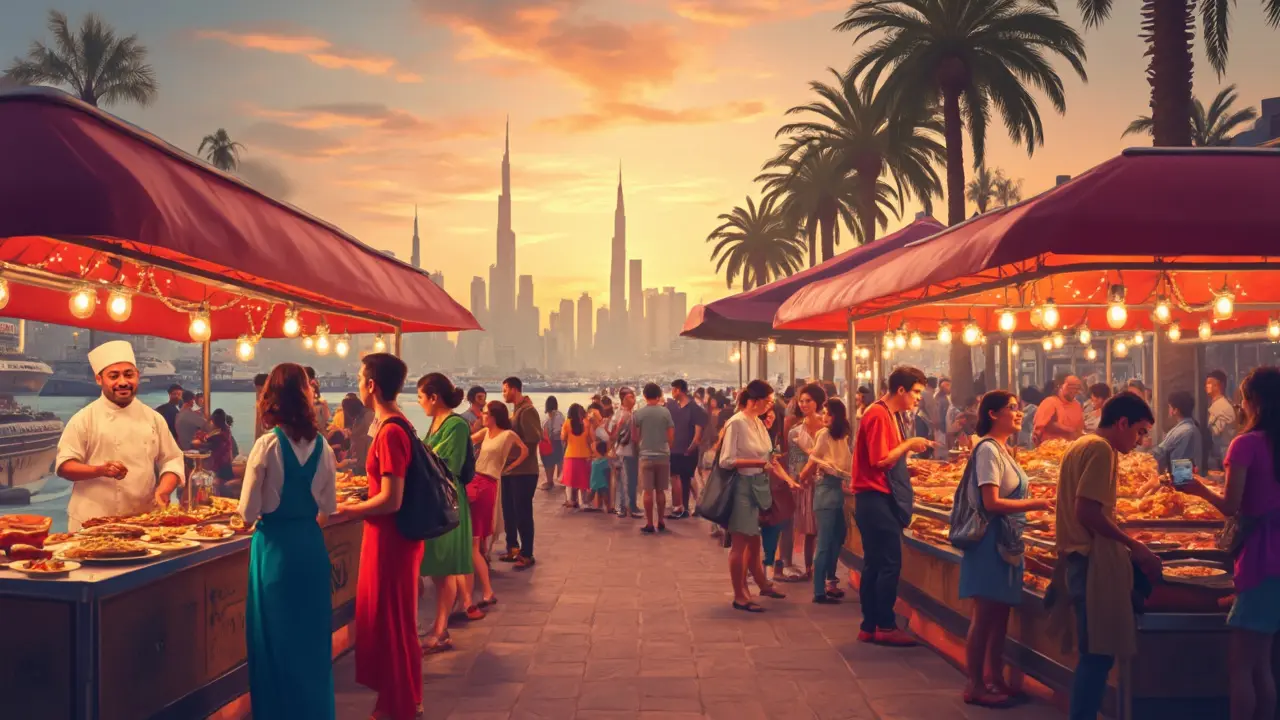
Festivals, Art, and Live Performances: Dubai’s Event Scene
If you think Dubai is all flashy buildings and five-star brunches, you’re missing half the story. The city is always buzzing with events, and the calendar never seems to go quiet. If soaking in culture is on your to-do list, it’s easy to mix festivals, art fairs, and live acts into your week.
Start with the Dubai Shopping Festival (DSF). This massive event isn’t just about bagging a bargain—it brings music concerts, firework shows, pop-up souks, and even street performances right into the heart of the city. DSF usually runs from December to January, so it’s prime time for surprises and the odd celebrity appearance.
If art’s your thing, don’t miss Art Dubai each March at Madinat Jumeirah. It’s the largest art fair in the Middle East, pulling together artists from over 40 countries. You can walk through digital installations, snap Insta pics of bold new sculptures, and chat with creators right at their stands. Entrance isn’t free, but students often get discounts.
- Dubai cultural experiences are front and center during the Dubai Opera season. Tucked beside Burj Khalifa, this sleek venue hosts everything from West End musicals and ballets to Arabic orchestra nights. Their online calendar is always updated, and tickets range from modest to fancy, so you can pick what fits your budget.
- Want open-air vibes? Try Global Village. Running from October to April, it’s part theme park, part world food fest, and part shopping carnival. Each country’s pavilion has its own flavor—think Turkish ice cream shows, dancing at the Indian stage, or African crafts.
- For something a bit edgy, head to Alserkal Avenue in Al Quoz. Galleries run regular events, including film nights, panel talks, and experimental theatre. It’s more chill, popular with creative types, and excellent for discovering up-and-coming talent.
Check the numbers—Dubai hosts more than 500 major events and live shows every year. Below is a quick look at the ones locals and expats rate highest:
| Event | Best Time to Visit | Main Highlight |
|---|---|---|
| Dubai Shopping Festival | Dec-Jan | Fireworks, concerts, street shows |
| Art Dubai | March | Global galleries, talks, installations |
| Global Village | Oct-Apr | International food, stage acts |
| Dubai Opera | Year-round | Musicals, concerts, ballets |
| Alserkal Avenue | Year-round | Art, indie film, theatre |
Tip: For most big festivals, book tickets online ahead of time—weekends sell out fast. And for metro access, Dubai Opera and Burj Park events are easiest to reach from Burj Khalifa/Dubai Mall station. Festivals here aren’t just fun—they’re probably the easiest way to meet people from all over the world, right in your backyard.
Dubai’s Foodscape: Tastes from Every Continent
If eating your way around the world sounds like a plan, good news—Dubai makes it absurdly easy. This city is obsessed with food, and you’ll find kitchens representing nearly every country you can think of, from Filipino food trucks in Karama to French patisseries in Jumeirah and authentic Ethiopian stews in Deira.
Want to experience true Emirati flavors? Try Al Fanar Restaurant & Cafe. Dishes like machboos (spiced rice with meat) and regag bread with egg hit that home-cooked spot and give you a real taste of the UAE’s culinary roots. For something more extravagant, Pierchic at Al Qasr is where you can impress visitors with Mediterranean flair, while Ravi Restaurant in Satwa is as iconic as it gets for Pakistani curries. Even late-night shawarma from Al Mallah in Al Satwa hits different after a long day.
But food in Dubai isn’t just about the usual sit-down meal. Weekend brunches are legit social events, often turning into all-afternoon affairs with endless buffets. Some popular spots? Brasserie 2.0 at Le Royal Meridien for its massive international selection, or Ewaan at The Palace Downtown if you’re craving Arabic grills and mezze.
You’re also spoilt for choice during Dubai Food Festival. It usually runs for 17 days, with stalls, pop-ups, and ‘hidden gems’ tours giving you a chance to sample off-the-map eats. People here are serious about food, and according to the Department of Economy and Tourism, the emirate boasted over 13,000 licensed food outlets by 2023. So, even locals are always finding new places to try.
| Cuisine | Popular Area/Restaurant | Signature Dish |
|---|---|---|
| Emirati | Al Fanar Restaurant, SMCCU | Machboos, Luqaimat |
| Indian | Ravi Restaurant, Karama | Chicken Tikka, Biriyani |
| Japanese | Zuma DIFC, Akiba Dori | Sushi, Ramen |
| Lebanese | Al Hallab, Zaroob | Shawarma, Fattoush |
| Filipino | Kuya Juan, Little Manila | Adobo, Halo-Halo |
No tiptoeing around it: Dubai’s dining scene is a melting pot. Skip the guesswork with apps like Zomato or Talabat, which help track what’s trending and where to grab the city’s Dubai cultural experiences through food. And if you’re vegetarian, you’re not sidelined; most places offer solid meat-free options and even have separate kitchens for it.
Bottom line? Be adventurous. Whether you’re into Michelin-starred tasting menus or hole-in-the-wall bakeries behind the Gold Souk, Dubai stacks up enough flavors for a lifetime—if you have the appetite to go exploring.
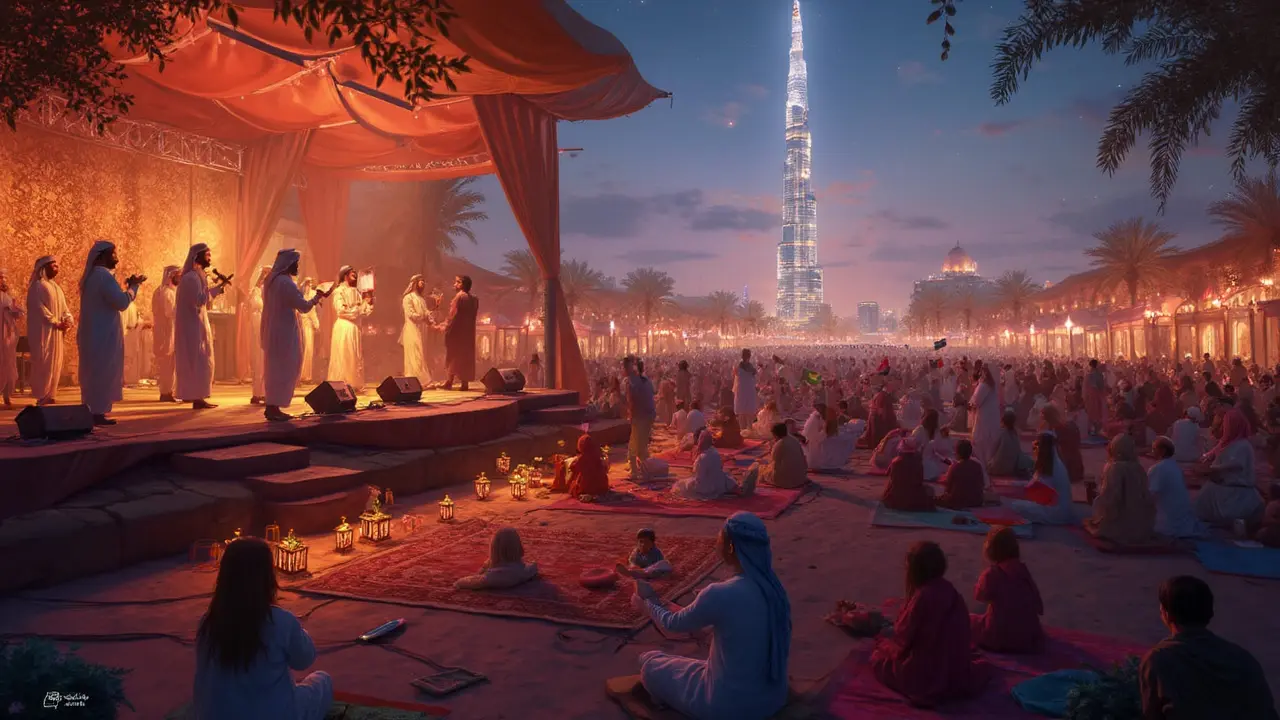
Connecting with the World: Unique Workshops and Cultural Exchanges
Diving into the city’s workshops and cultural exchanges unlocks a whole new side of life in Dubai. This is where you meet people from everywhere and pick up fresh skills (sometimes ones you never thought you’d try). If you’re into Dubai cultural experiences that feel real, not staged, keep reading.
For starters, check out the Jameel Arts Centre in Jaddaf Waterfront. They’ve got hands-on art sessions—pottery one week, Emirati crafts the next. The vibe is super laid-back, with artists from across the region offering practical tips and encouraging absolute beginners. Their kids’ days are especially popular with Dubai families who want to raise creative, culturally-aware children.
If you’re a foodie, sign up for a cooking class at the Frying Pan Adventures Kitchen. They host themed workshops where you can master everything from Emirati machboos to Palestinian maqluba, all under the guidance of local chefs. These sessions always end with a communal meal, so get ready to swap stories with fellow Dubai residents and foodies from across the globe.
The Sheikh Mohammed Centre for Cultural Understanding (SMCCU) is classic Dubai. Their ‘Open Doors, Open Minds’ program lets you join cultural breakfasts and lunches in a traditional majlis (seating area), hosted in the Al Fahidi Neighbourhood. Expect to ask anything about life in the UAE—no question is off-limits and the hosts really want you to understand Emirati customs.
- For language buffs: Eton Institute often runs Arabic crash courses. Even picking up basic greetings can completely change how locals interact with you.
- Dance and music: Ductac (Dubai Community Theatre and Arts Centre) used to lead the way for Bollywood, flamenco, and even Japanese taiko drumming workshops. After relocating, similar workshops now pop up in venues like The Theatre at Mall of the Emirates.
- Wellness: Try a tea ceremony at the Japanese Cultural Exchange Center or join yoga classes inspired by Indian traditions at Karma Yoga in Dubai Marina.
Pro tip: Most workshops fill up fast, especially during weekends. Book early, and don’t be shy if you’re going solo—Dubai’s mix of expats and locals means everyone’s always meeting someone new.

